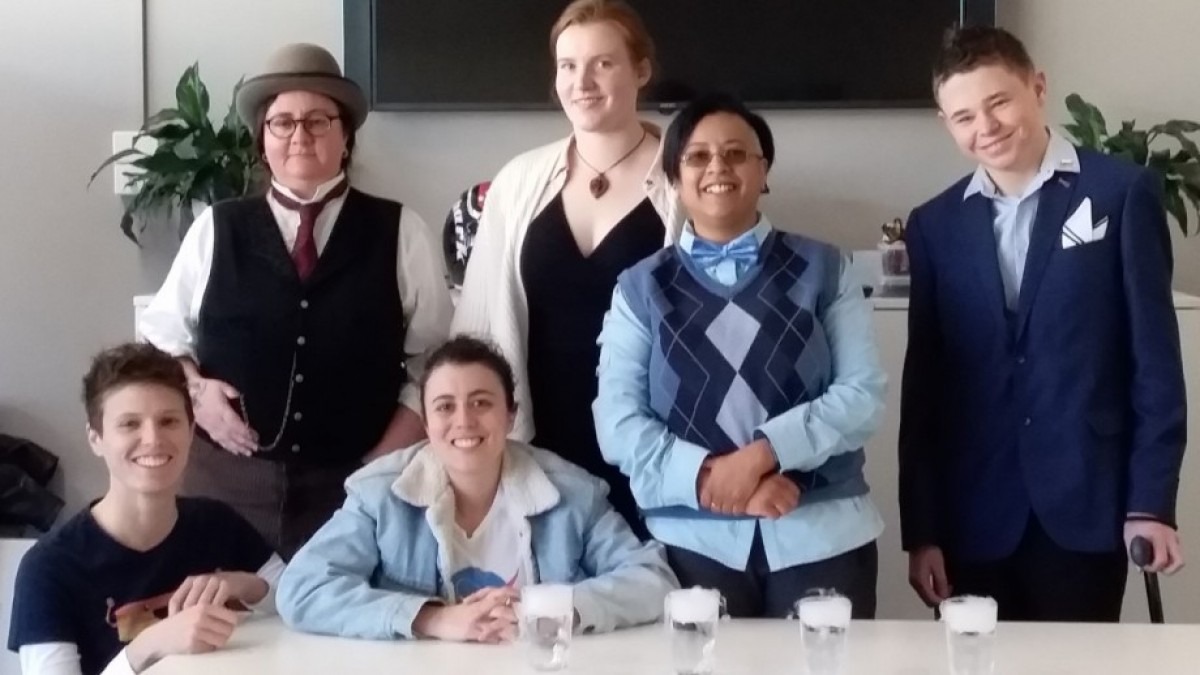Science communication: LGBTIQ+ education for neurodiverse young people
Neurodiverse young people, especially those with intellectual disabilities, need better support with gender and sexuality diversity, according to PhD candidate Vanessa de Kauwe from the Australian National Centre for the Public Awareness of Science.
Ms de Kauwe was speaking at an event called ‘Sexuality and the Rainbow Spectrum’, which she organised for National Science Week 2019.
‘There’s a real concern that LGBTIQ+ education isn’t being delivered in a manner that’s helpful for young people with neurodiversity,’ she said. ‘Even in standard sex education, gender and sexuality beyond the heteronormative are often taught as an added extra rather than a central topic. But it’s much worse for people in disability schools and units.’
As well as being sponsored by National Science Week, the event was co-sponsored by a number of disability advocacy and support organisations, including the ACT Down Syndrome Association, who ‘realised the need for this’, said Ms de Kauwe.
‘Sex ed used to be part of science education, and it sometimes still is,’ she explained. ‘But here’s the thing: people with intellectual disabilities in particular do not have access to later year science education anyway, so things have fallen by the wayside, even the physical nitty gritty of the body parts and things like that.’
Ms de Kauwe had opened up the event for anyone to attend, including neurodiverse LGBTIQ+ young people. All 40 tickets were snapped up within a short time, and 102 people who couldn’t make it in person also posted questions online.
However, some ticket holders didn’t end up coming — most of them young people who had booked tickets. For Ms de Kauwe, this emphasised how pressing the need is for this kind of event.
‘I really underestimated how difficult it was for young people with disabilities to come out,’ said Ms de Kauwe. ‘Those who ended up coming were either older people with neurodiversity or people who were teachers, carers, parents and professionals in the area of neurodiversity.’
This won’t be the end of the story. ‘We already got some feedback. People from a community centre on one side of Canberra would like me to recreate the event again. Some educators from Queanbeyan and country New South Wales asked if we’d be able to recreate it for their schools, because they saw a definite need in a positive message about what to do, what to say, and what is not helpful, when it comes to LGBTQI education.’
Support from CPAS QUILTBAG
In the first part of the three hour event, Ms de Kauwe gave a rousing talk on the current state of sex and gender education and science education for people with intellectual disabilities, which elicited much discussion from participants.
‘A lot of disability education just tells people with intellectual disabilities “the answers”, instead of teaching them how to find the answers through developing ownership of their own thoughts and feelings,’ she said.
She spoke of the importance of teaching students how to develop their own thinking and emotional processes, so they can form a sense of identity, can act with agency in the world, and can make genuine choices.
Afterwards, she was joined by a panel of seven neurodiverse and sexuality/gender-diverse people who briefly introduced themselves then answered questions about sexual practice, sexual and gender identity and disability education from the live and online participants.
The first panel member to speak was Mr Jay McMahon, who is currently an apprentice in Ms de Kauwe’s Disability Ambassadors program, run through her organisation Science Alliance. Mr McMahon spoke about his experiences in disability education as well as his own sexual identity.
Four of the other panel members were from the CPAS QUILTBAG group, formed in early 2019 by CPAS staff and students who identify as LGBTIQ+. The two other panellists were professionals in disability education and support.
In the final section of the event, some of the panellists presented science demonstrations, as is staple for many CPAS outreach programs. There were two reasons for this, as Ms de Kauwe explained.
‘The demonstrations were to show that people with neurodiversity and/or gender or sexuality diversity can still be highly intellectual, and don’t have to be kept away from intellectual activities or studies or intellectual careers,’ she said.
‘The other thing too is, when there is a level of neurodiversity and especially with very private topics like sexuality and so forth, sometimes it’s easier to have a chat with someone, even someone you trust, if you’re doing something else with your hands. There’s some sort of distraction so you can look away a bit, and then have a quiet word while you’re doing that activity. That always helps.’

